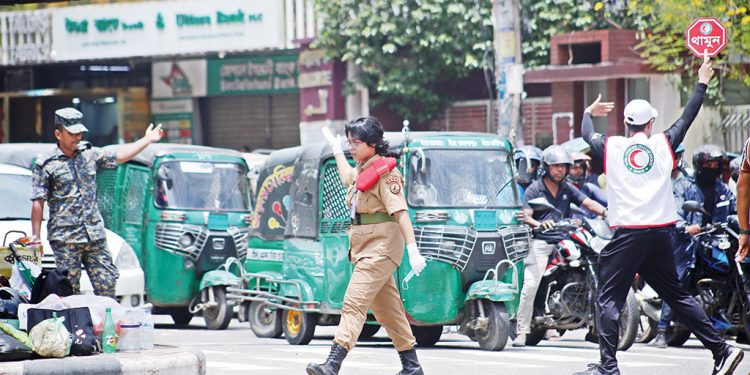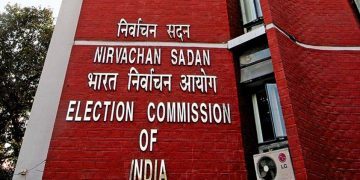Three days after Sheikh Hasina resigned and ran away from Bangladesh the country’s only Nobel laureate, Muhammad Yunus, assumed charge as the “chief adviser” of a caretaker government formed to bring peace and democracy that had, as her critics say, been undermined during her 15 years of “autocratic rule.” Chaos and lawlessness have gripped Bangladesh since the students’ uprising in protest against an “unjust” job quota and killings and violence that took place under Hasina’s rule.
Right-wing groups, supporters of the Opposition Bangladesh Nationalist Party and jihadi organisations are believed to be behind the counter-violence the country is now experiencing. The foremost challenges facing Yunus could be to ensure law and order after days of attacks on the houses of Awami League politicians, sporadic attacks on temples and homes of minority Hindoos who were considered close to Hasina. There has been a noticeable absence of policing as exemplified by students this week managing traffic on the busy streets of Dhaka. These students explained they were helping traffic management since many police officers and men have refused to be out on duty till there is peace and they are not attacked. The protesters are furious with the police for the ruthless crackdown on students during the agitation against quota and subsequent violence. It is interesting to note that Yunus said, immediately after swearing in, that his caretaker government “commits to bringing freedom to every home,” adding in the same breath that those who committed wrongdoing during Hasina’s tenure “will be held accountable.” These words clearly give the ‘go ahead’ sign to the street mobs to decide and act on whomsoever they think must be made ‘accountable’. The interim government is a mix of both experience and youth and includes rights activists, professors, lawyers, former government officials and other prominent members of Bangladesh’s civil society. But it is the surprise inclusion of two 26-year-old student leaders who spearheaded the recent movement against Hasina that is likely to trigger controversy in the coming days. Nahid Islam, a student of sociology at Dhaka University, has been given the telecommunications portfolio while Asif Mahmud, a student of linguistics at the same university, will look after sports. Defending his inclusion Islam said “if Bangladesh is led by its youth, the country will stay true to its goals.” Mahmud said he was ready for the challenges that lay ahead. What he said is a mixture of rhetoric and reality, “the state institutions were devastated under (Hasina’s) fascist regime. Our goal is to eradicate fascism by reforming these institutions.”
Former army officer M Sakhawat Hossain has been given the Ministry of Home Affairs. He used to be close to Hasina’s Awami League but supported the student protests against her government. The Ministry of Finance has been given to Saleh Uddin Ahmed, who governed the central bank during the 2001-2006 rule of the opposition Bangladesh Nationalist Party (BNP). Former diplomat and columnist Touhid Hossain will look after foreign affairs. Other notable figures in the new government are climate change minister Syeda Rizwana Hasan, a winner of the Ramon Magsaysay Award for her environmental work, rights activist Adilur Rahman Khan, who will handle industries, electoral reforms activist Sharmeen Murshid, charged with the Ministry of Social Welfare and women’s rights activist and advocate for biodiversity-based ecological agriculture Farida Akhter, who will run the Ministry of Fisheries and Livestock.
The other members of the cabinet are former Attorney General Hasan Ariff (local government affairs), Yunus’ longtime associate Nurjahan Begum (health) and Muslim leader and academic Khalid Hossain (religious matters). There are three more ministers, psychiatrist Bidhan Ranjan Roy from the Hindoo community, Supradip Chakma from the indigenous Chakma community based in the Chittagong Hill Tracts and independence fighter Faruk-e-Azam. But, their portfolios are yet to be announced. Thus on paper, the interim government with its wide array of leaders from all walks of life looks remarkably diverse. It will be keenly watched whether the new administration will be able to take the country of 170 million people out of what one of the members of the new government called a “dark era” and the prospect of military rule or a religious fundamentalist-controlled regime. Bangladesh has multiple threats waiting for it in the near future. None of its neighbours seems capable of helping it in this crisis.






































